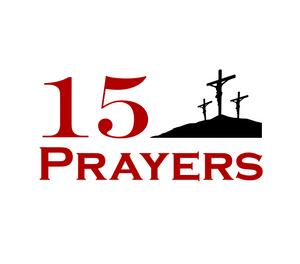
Book XVI
The history of the city of God from Noah to the time of the kings of Israel.
Chapter 1
Whether, after the deluge, from Noah to Abraham, any families can be found who lived
according to God.Chapter 2
What was prophetically prefigured in the sons of Noah.
Chapter 3
Of the generations of the three sons of Noah.
Chapter 4
Of the diversity of languages, and of the founding of Babylon.
Chapter 5
Of God’s coming down to confound the languages of the builders of the city.
Chapter 6
What we are to understand by God’s speaking to the angels.
Chapter 7
Whether even the remotest islands received their fauna from the animals which were
preserved, through the deluge, in the ark.Chapter 8
Whether certain monstrous races of men are derived from the stock of Adam or Noah’s sons.
Chapter 9
Whether we are to believe in the Antipodes.
Chapter 10
Of the genealogy of Shem, in whose line the city of God is preserved till the time of Abraham.
Chapter 11
That the original language in use among men was that which was afterwards called Hebrew,
from Heber, in whose family it was preserved when the confusion of tongues occurred.Chapter 12
Of the era in Abraham’s life from which a new period in the holy succession begins.
Chapter 13
Why, in the account of Terah’s emigration, on his forsaking the Chaldeans and passing over
into Mesopotamia, no mention is made of his son Nahor.Chapter 14
Of the years of Terah, who completed his lifetime in Haran.
Chapter 15
Of the time of the migration of Abraham, when, according to the commandment of God, he
went out from Haran.Chapter 16
Of the order and nature of the promises of God which were made to Abraham.
Chapter 17
Of the three most famous kingdoms of the nations, of which one, that is, the Assyrian, was
already very eminent when Abraham was born.Chapter 18
Of the repeated address of God to Abraham, in which He promised the land of Canaan to
him and to his seed.Chapter 19
Of the divine preservation of Sarah’s chastity in Egypt, when Abraham had called her not his
wife but his sister.Chapter 20
Of the parting of Lot and Abraham, which they agreed to without breach of charity.
Chapter 21
Of the third promise of God, by which He assured the land of Canaan to Abraham and his
seed in perpetuity.Chapter 22
Of Abraham’s overcoming the enemies of Sodom, when he delivered Lot from captivity and
was blessed by Melchizedek the priest.Chapter 23
Of the word of the Lord to Abraham, by which it was promised to him that his posterity
should be multiplied according to the multitude of the stars; on believing which he was declared justified while yet in uncircumcision.Chapter 24
Of the meaning of the sacrifice Abraham was commanded to offer when he supplicated to be
taught about those things he had believed.Chapter 25
Of Sarah’s handmaid, Hagar, whom she herself wished to be Abraham’s concubine.
Chapter 26
Of God’s attestation to Abraham, by which He assures him, when now old, of a son by the
barren Sarah, and appoints him the father of the nations, and seals his faith in the promise by
the sacrament of circumcision.Chapter 27
Of the male, who was to lose his soul if he was not circumcised on the eighth day, because
he had broken God’s covenant.Chapter 28
Of the change of name in Abraham and Sarah, who received the gift of fecundity when they
were incapable of regeneration owing to the barrenness of one, and the old age of both.Chapter 29
Of the three men or angels, in whom the Lord is related to have appeared to Abraham at the
oak of Mamre.Chapter 30
Of Lot’s deliverance from Sodom, and its consumption by fire from heaven; and of
Abimelech, whose lust could not harm Sarah’s chastity.Chapter 31
Of Isaac, who was born according to the promise, whose name was given on account of the laughter of both parents.
Chapter 32
Of Abraham’s obedience and faith, which were proved by the offering up of his son in
sacrifice; and of Sarah’s death.Chapter 33
Of Rebecca, the grand-daughter of Nahor, whom Isaac took to wife.
Chapter 34
What is meant by Abraham’s marrying Keturah after Sarah’s death.
Chapter 35
What was indicated by the divine answer about the twins still shut up in the womb of
Rebecca their mother.Chapter 36
Of the oracle and blessing which Isaac received, just as his father did, being beloved for his
sake.Chapter 37
Of the things mystically prefigured in Esau and Jacob.
Chapter 38
Of, Jacob’s mission to Mesopotamia to get a wife, and of the vision which he saw in a dream
by the way, and of his getting four women when he sought one wife.Chapter 39
The reason why Jacob was also called Israel.
Chapter 40
How it is said that Jacob went into Egypt with seventy-five souls, when most of those who
are mentioned were born at a later period.Chapter 41
Of the blessing which Jacob promised in Judah his son.
Chapter 42
Of the sons of Joseph, whom Jacob blessed, prophetically changing his hands.
Chapter 43
Of the times of Moses and Joshua the son of Nun, of the judges, and there after of the kings, of whom Saul was the first, but David is to be regarded as the chief, both by the oath and by merit.

